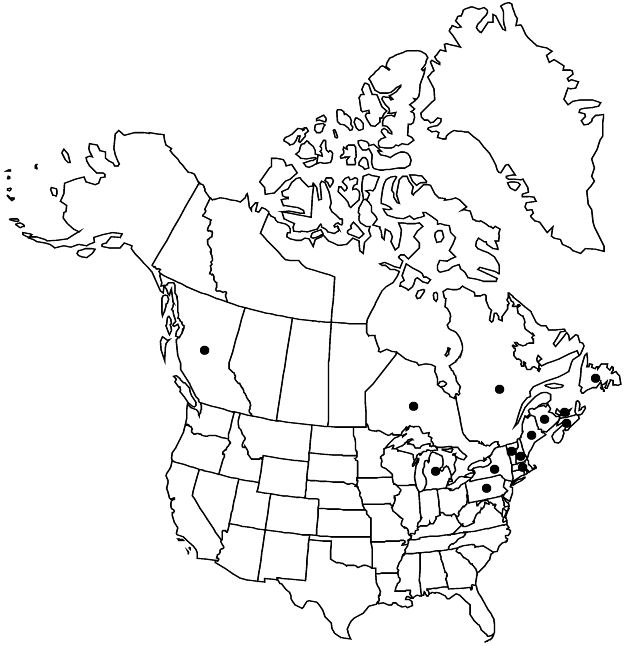Linum catharticum
Sp. Pl. 1: 281. 1753.
Herbs, 8–30 cm, glabrous. Stems erect, usually unbranched proximal to inflorescence, sometimes branched from decumbent base. Leaves: blade narrowly elliptic to oblanceolate or narrowly obovate or oblong, larger 5–18 × 1.4–3.1 mm, largest at midstem, reduced in size both proximally and distally, apex obtuse to acute. Inflorescences panicles. Pedicels 6–35 mm. Flowers: sepals broadly lanceolate to ovate, outer sepals 2–3 mm, inner sepals broader, shorter, margins of all or sometimes only of inner sparsely but conspicuously glandular-toothed, apex acute to acuminate; petals white or whitish, base yellowish, 2–5 mm, obovate; stamens 1 mm, anthers 0.2–0.3 mm; styles 0.5–1 mm. Capsules ovoid, 2–2.5 × 2 mm, fragile and subject to crushing when pressed; segments persistent on plant, septa margins ciliate. Seeds 1–1.5 × 0.6–0.8 mm. 2n = 16.
Phenology: Flowering Jun–Aug.
Habitat: Calcareous or sandy soils, fields, pastures, roadsides.
Elevation: 0–400 m.
Distribution

Introduced; B.C., N.B., Nfld. and Labr. (Nfld.), N.S., Ont., P.E.I., Que., Maine, Mass., Mich., N.H., N.Y., Pa., Vt., Europe, w Asia, Atlantic Islands (Iceland), introduced also in South America (Argentina), Pacific Islands (New Zealand), Australia (Tasmania).
Discussion
Linum catharticum has small, white, funnelform corollas, yellow anthers, and light green stigmas. It is the only Linum in the flora area with white petals and opposite leaves. The species is widespread in Europe and occurs only sporadically in the northern United States and most of its range in Canada. It may be native in Newfoundland and Nova Scotia, where it is well established.
Selected References
None.